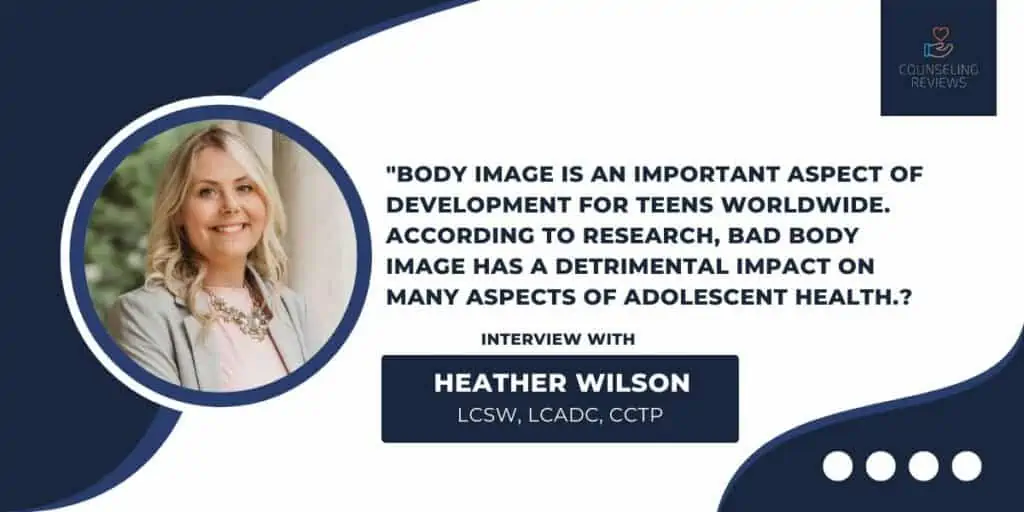Teenagers have been some of the worst hit demographic groups, when it comes to the effects of the pandemic. Social isolation can be detrimental to emotional development, especially during adolescence.
The pandemic rendered most teenagers confined to their homes, lacking social support and extracurricular activities. A number of studies show that these situations have resulted in increased levels of depression, stress, and anxiety.
To understand the effects of the pandemic among teenagers and what parents can do to help alleviate these symptoms, we had a brief conversation with Heather Wilson.
Heather Wilson LCSW, LCADC, CCTP is the Executive Director at Epiphany Wellness, and works closely with adolescents and their parents. She had a number of insightful tips for parents to help their growing children cope with the effects of the pandemic.

1. In Your Opinion, what Challenges do Teenagers Face Today?
In my opinion, there are three major areas in which teenagers experience difficulties today.
- Underdeveloped Social Skills
During adolescence, people develop social skills and empathy, plus a sense of self-identity. All these happen through social interactions.
This is why the isolation resulting from the COVID-19 Pandemic has had an adverse effect on the lives of teens. It has interrupted the natural routine of their lives when social and spending time being with peers is most important.
Because some of their developmental needs were not met, teens experienced the Pandemic differently when compared with adults.
- First Experience with Loss
According to the World Health Organization (WHO) at the time of speaking with you, there have been 619,161,228 confirmed cases of COVID-19, including 6,537,636 deaths.
Many young folks also lost loved ones. It could have been their grandparents with comorbidities, parents who were frontline workers, or even friends who caught the virus.
This could be the teen’s first experience with loss and grief, and that can be very difficult for them to understand or deal with.
- Post-Traumatic Stress from Quarantine and Social Distancing
According to the WHO, the end of the Pandemic is in sight, although an average of 400 Americans die from COVID-19-related deaths daily.
Nevertheless, the United States has lifted most of the health restrictions that were in place. However, even if health precautions are significantly more relaxed now, people still experience post-traumatic stress.
The long-term effects of isolation, quarantine, social distancing, and other stressful Pandemic related things can manifest in anger, anxiety, depression, substance abuse, and behavioral changes.
These symptoms can last from several months up to three years after the quarantine period.

2. Before the Pandemic, what Were the Most Common Challenges you were Facing with Teens?
Two of the challenges that teens faced before the pandemic were:
- Self-esteem and body image issues
Body image is an important aspect of development for teens worldwide. According to research, bad body image has a detrimental impact on many aspects of adolescent health.
Anticipatory guidance about body image is vital at the yearly health maintenance checkup visit. Issues with weight are intimately related to body image and have been linked to negative mental health impacts.
- Bullying
Research shows that about 10 percent of children in the United States experience frequent bullying. The psychological trauma they experience from this can follow them well into adulthood or even cause lifelong damage.
These psychological issues can manifest through social difficulties, depression, suicidal thoughts and ideation, and eating disorders.
3. What can You Advise Parents with Post-Pandemic Teen Problems?
Parents can do a lot of things to help their teens cope better. Here are 4 most important things they need to do:
- Encourage Them to Be Physically Active
The lockdown has made many people, especially teens, become more sedentary. This is why it is important for parents to encourage their kids to be physically active.
Some of the benefits of physical activity for teens include improved mental health plus a stronger physical body.
- Encourage Them to Connect with Their Peers
Social interaction is an important part of teenage development. The Pandemic has made it difficult for many teens to connect with their peers, which can lead to feelings of isolation and loneliness.
As a parent, you can encourage your teen to connect with their peers by helping them find ways to interact safely, such as through online platforms or outdoor activities.
- Encourage Them to Talk about Their Feelings
It is important for parents to encourage their teens to talk about their feelings, both good and bad. This will help them process their emotions in a healthy way and prevent them from bottling up their feelings, which can lead to negative mental health impacts.
- Provide Them with Access to Professional Psychological Help
If your teen is struggling to cope with their emotions, it is important to provide them with access to professional psychological help.
This can help them develop healthy coping mechanisms and prevent the development of more serious mental health issues.
4. What is The Best Therapy Teens can get?
Psychotherapy or talk therapy can be greatly beneficial to teens. This type of therapy can help them process their emotions in a healthy way and learn healthy coping mechanisms.
If your teen is struggling to cope with their emotions, it is important to provide them with access to professional psychological help. This can help them develop healthy coping mechanisms and prevent the development of more serious mental health issues.

Getting Your Teen, the Help they Need is of Utmost Importance
As you can see, teenagers experience a number of psychological difficulties while growing up. The pandemic has exacerbated many of these problems, leading to disruptions in their social and emotional development.
Heather Wilson correctly recommends psychotherapy as the tool of choice to help teenagers cope with loss, isolation, and body image issues.
Parents should be careful to recognize early symptoms of difficulties and make an appointment with a professional. This helps avoid acute problems from turning into chronic ones and provide teenagers with the support they need.
Parents should also encourage their kids to share their feelings and accept their difficulties without judgment. This will help provide a validating atmosphere at home for growing adolescents.





